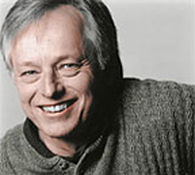Interview of Jacques Chevalier, Carleton University, Canada
How and why did you make participatory research practices your object of research?
I made this professional shift following my action-research work on sustainable development in Latin America in the 1980s and 1990s, when my colleagues and I were trying to do participatory work without really knowing how to tackle it. The existing literature proposed approaches and methods which, in my opinion, did not meet the requirements of a genuine ’science in society’. It was then that I decided to make PAR an object of experimentation and research in its own right, an interest that I have pursued over the years.
You are co-founder of SAS2 and co-author of a reference work on participatory action-research tools and techniques (www.sas2.net). What does this work mean to you today?
The two books published by Routledge (Participatory Action Research: Theory and Methods for Engaged Research, 2013, 2019) and the Guide to Participatory Action Research, Planning and Evaluation (2021), available in three languages on our website, are a compendium of everything that my colleagues and I have created and experimented with around the world over the last 20 years, as well as the conceptual foundations of the approach that we have developed in a wide variety of fields.
You prefer to talk about participatory action research rather than participatory research. Why and what would distinguish these approaches from what is called citizen science?
Unlike participatory action research, citizen sciences:
- are not necessarily action-oriented;
- do not always contribute to the advancement of knowledge (other than strictly descriptive or empirical);
- too often limit citizen participation to collecting data in the field;
- tend to expand massively and individualise the participating subject, without the involvement of organised ’stakeholders’ (defined according to criteria other than their simple identity as citizens).
